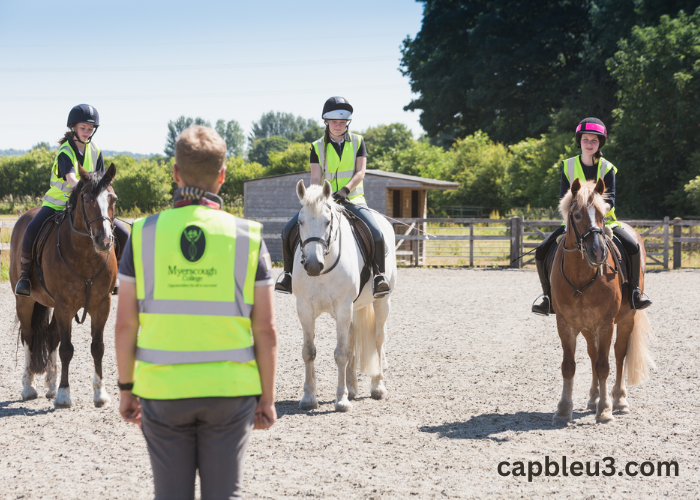
Horses have captivated human hearts and imaginations for centuries. Their beauty, strength, and intelligence make them remarkable companions, whether they’re working animals or cherished pets. Achieving equine excellence involves not only understanding and nurturing the physical and mental well-being of your horse but also developing a strong bond through effective training. Here’s a comprehensive guide to training and caring for your horse to ensure they thrive and excel. Discover CasaCourses, your premier destination for comprehensive online courses. Enhance your skills and knowledge with expert-led training tailored for you.
Understanding Your Horse
Before diving into training techniques, it’s crucial to understand your horse’s basic needs and behavior. Horses are prey animals with a flight response, meaning they can be easily startled. Building trust and creating a safe environment are essential for effective training.
1. Basic Needs: Ensure your horse has access to clean water, a balanced diet, regular exercise, and appropriate shelter. Horses also require social interaction, so consider their need for companionship, either with other horses or human contact.
2. Health and Wellness: Regular veterinary check-ups, vaccinations, deworming, and hoof care are vital. Pay attention to changes in behavior or physical condition, as they can be signs of health issues.
Training Techniques
Training a horse requires patience, consistency, and a deep understanding of equine psychology. Here are some fundamental techniques for achieving effective training:
1. Positive Reinforcement: Horses respond well to rewards for good behavior. Use treats, praise, or a gentle pat to reinforce desired actions. This encourages the horse to repeat the behavior in the future.
2. Clear Communication: Use consistent commands and signals. Horses learn through repetition and clear cues, so ensure your commands are distinct and used consistently.
3. Patience and Timing: Training takes time, and each horse learns at its own pace. Be patient and allow your horse to absorb and respond to training cues without rushing the process.
4. Groundwork: Groundwork, or training exercises performed while the horse is on the ground, builds trust and respect. Techniques like leading, lunging, and desensitization exercises help establish a foundation for more advanced training.
5. Building Confidence: Gradually introduce your horse to new experiences and environments to build their confidence. Avoid overwhelming them with too many changes at once.
Advanced Training and Discipline
Once your horse has mastered basic commands and behaviors, you can move on to more advanced training, depending on your goals and interests:
1. Discipline-Specific Training: Whether you’re interested in dressage, jumping, or western riding, tailor your training to the specific discipline. Work with a qualified trainer if needed to refine skills and techniques.
2. Problem-Solving: Address behavioral issues with a systematic approach. Identify the cause of the problem and use targeted training methods to resolve it. Avoid punishment, as it can erode trust and make behavior worse.
3. Ongoing Education: Horses benefit from continuous learning. Incorporate new challenges and exercises into their routine to keep them engaged and mentally stimulated.
Caring for Your Horse
Effective training is only part of the equation. Comprehensive care is essential for a happy and healthy horse:
1. Daily Care: Establish a routine for feeding, grooming, and checking your horse’s condition. Regular grooming helps with bonding and allows you to spot any potential health issues early.
2. Exercise and Enrichment: Provide regular exercise to maintain your horse’s physical and mental health. Allow them time to graze and explore their environment to satisfy their natural instincts.
3. Equipment and Tack: Ensure all equipment is well-fitting and in good condition. Poorly fitting tack can cause discomfort and affect your horse’s performance and well-being.
4. Training Environment: Create a positive and safe training environment. A calm, distraction-free space helps your horse focus and learn more effectively.
Building a Strong Bond
Ultimately, equine excellence is about the bond between you and your horse. Develop trust through consistent, gentle interactions and shared experiences. The stronger your relationship, the more successful your training efforts will be.
In conclusion, achieving equine excellence requires dedication to both training and care. By understanding your horse’s needs, using effective training techniques, and providing comprehensive care, you can ensure a fulfilling and successful partnership with your equine companion.